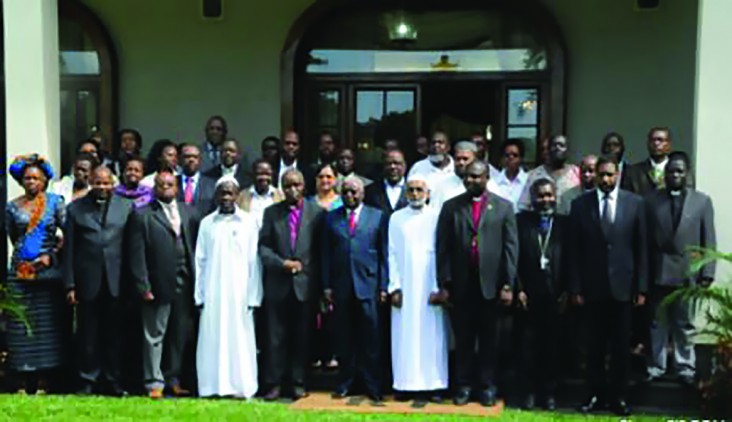- Work With USAID
- How to Work with USAID
- Organizations That Work With USAID
- Find a Funding Opportunity
- Resources for Partners
- Careers
- Get Involved
Speeches Shim

Background
Funded since 2007, Programa Inter-Religiosa Contra a Malaria (PIRCOM), co-chaired by The Right Rev. Dinis Sengulane, Anglican Bishop Emeritus of Libombo (President of PIRCOM), and Sheik Aminudine Mohamad, President of the Islamic Council (Vice-President), and in coordination with the Center for Interfaith Action on Global Poverty, is a unique platform for coordination among Christian, Muslim, Hindu, and Baha’i religious leaders at national and local levels, to equip and mobilize community leaders with information to change attitudes and behaviors about malaria prevention and treatment.
This project harnesses the powerful influence of religious leaders towards achieving the U.S. President’s Malaria Initiative (PMI) and the National Malaria Control Program (NMCP) goals to reduce morbidity and mortality due to malaria in Mozambique, particularly among pregnant women and children under five years through behavior change communication activities, and to impact other key health related attitudes and behaviors.
Bishop Dinis Matsolo (PIRCOM Executive Director) says, “If a doctor talks about how important it is for you to have your home sprayed, of course he will talk about those things in those terms, because it is how he will get his salary. But when a leader of a mosque starts talking about health issues, about malaria, then people are ready to listen. [Religious leaders] have a good audience.”
Current project activities include training of trainers with faith leaders; training of faith leaders and lay activists to serve as community health volunteers; dissemination of key messages related to malaria prevention and treatment through faith leaders and volunteers at district and community level; use of community radio by faith leaders to strengthen community mobilization for prevention and treatment of malaria; leveraging mass media (national television and radio, public meetings, newspapers) for PIRCOM leadership to advocate and disseminate key messages on malaria prevention.
Faith-Based and Community Initiatives
The project works with members to disseminate messages throughout Mozambique about malaria prevention and treatment opportunities. Religious and community leaders also participate in debates on community radio and other media to promote messages about malaria prevention and treatment. Religious leaders and volunteers also collaborate as community health workers, visiting homes to provide preventative care, treatment, and referrals to health posts and projects such as home-based spraying campaigns.
The inclusion of religious leaders as the national co-chairs of PIRCOM has also been beneficial. Their position in national discourse has enabled the project to reach greater visibility and establish connections with national decision makers, such as the Ministry of Health.
Results
PIRCOM has improved the use of mosquito nets to protect pregnant women and children under five and increased adherence to malaria testing and treatment. Religious leaders have shown that they can confidently lead their groups on the topic of malaria. Their self-assurance and use of the local language during facilitation allows greater understanding and discussion participation. In the first phase of the project, 27,000 local religious leaders were trained in 4 provinces using cascade training methods, and reached an estimated 2 million faith community members with malaria control messages. PIRCOM built upon its success in the first phase by expanding outreach through community radio and other forms of media, which enabled the project to reach more than 3.3 million people as of June 2017.

Comment
Make a general inquiry or suggest an improvement.